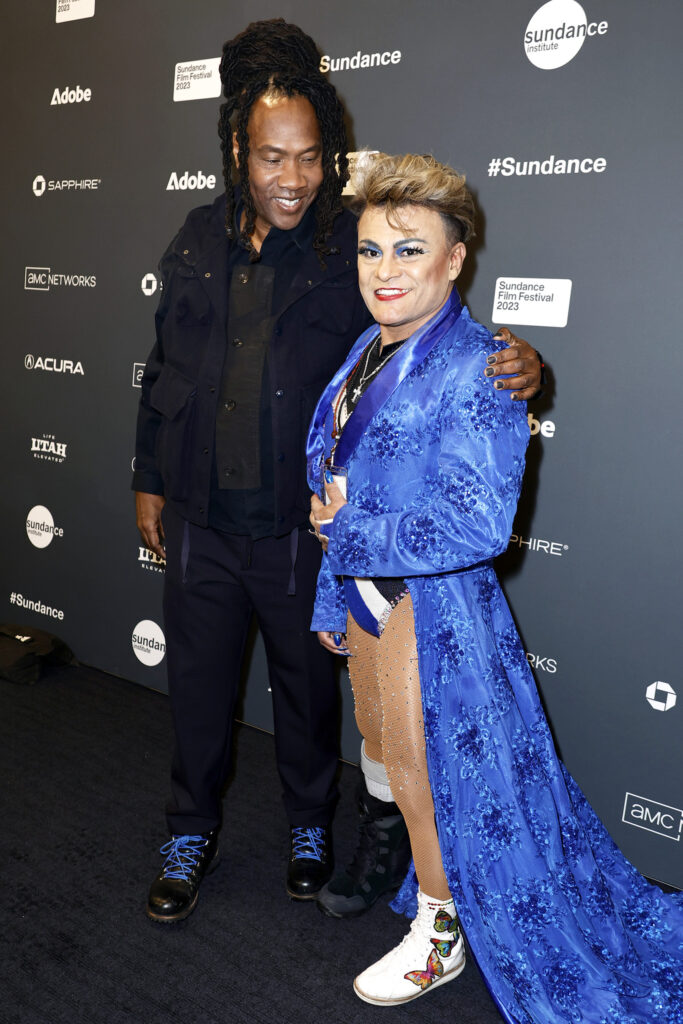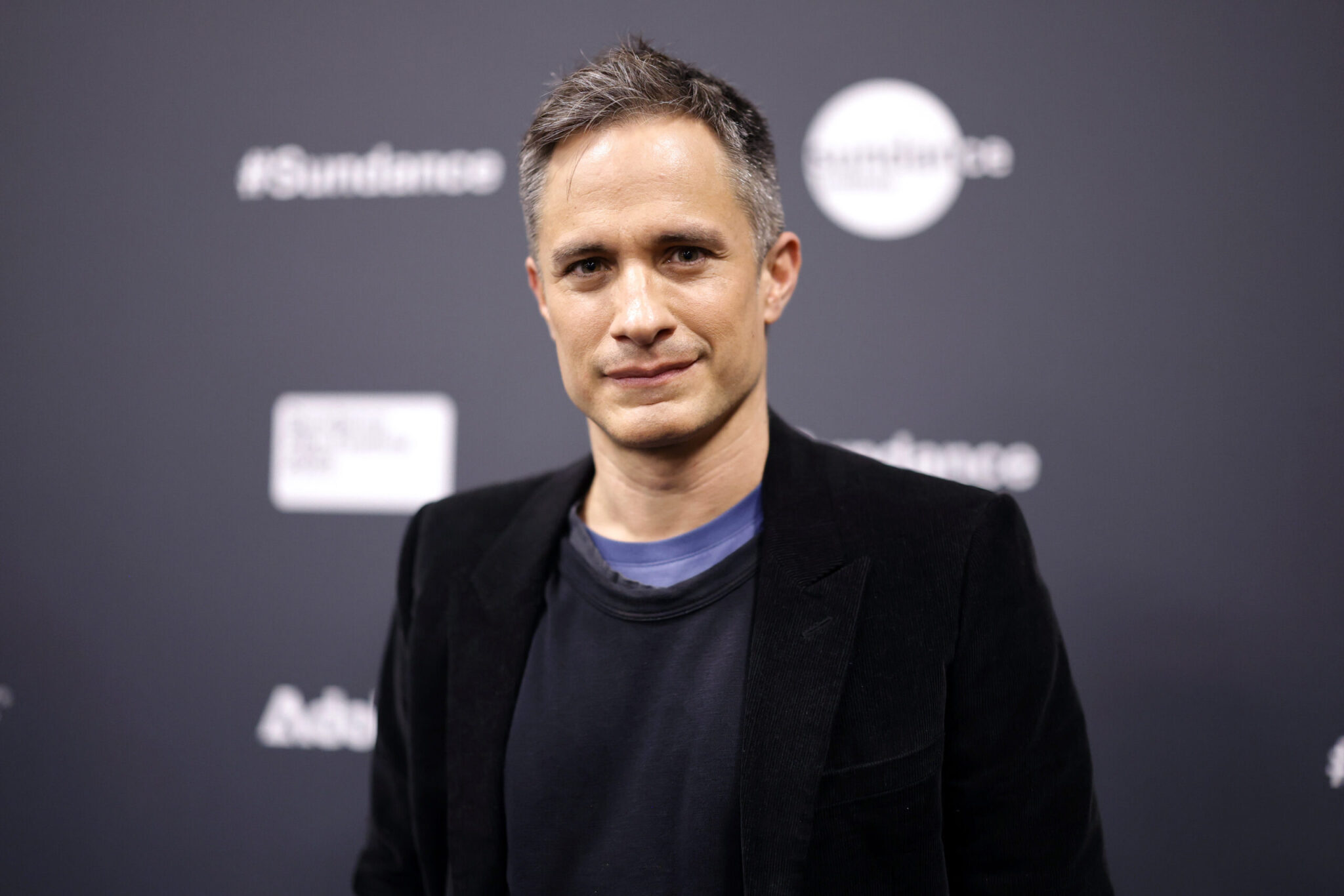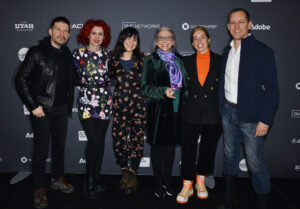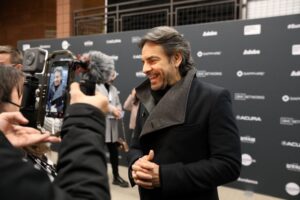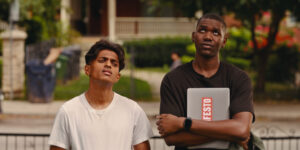Gael García Bernal attends the 2023 Sundance Film Festival “Cassandro” Premiere at The Ray Theatre on January 20, 2023 in Park City, Utah. (Photo by Frazer Harrison/Getty Images)
By Bailey Pennick
As the end credits start to roll during the world premiere of Roger Ross Williams’ (Life, Animated) latest film and first narrative feature, the chants of “Cassandro” gain in both volume and fervor. By the time the lights at The Ray Theatre come up, and the trailblazing luchador is led out to the stage by the film’s leading actor — Gael García Bernal — to join Williams for the post-screening Q&A, the crowd is already on its feet for the iconic exótico wrestler. With several wrestling championships and prize-fight wins under his belt, an adoring audience might be old hat to Saúl Armendáriz, but this time he seems truly touched.
“When we were in pre-production [for this film], we went to see Cassandro fight in El Paso, and two days before we started production, Cassandro had a stroke,” says the director at the top of the conversation. “He lost movement in half his body and his ability to speak.” Sitting in between Williams and Bernal, Armendáriz nods. “It was heart-wrenching, but it motivated us so much more to make a beautiful film that was a tribute to him.” Williams looks over to the bedazzled inspiration for his first foray into the narrative film world and smiles. “He can’t answer your questions, but he can act them out!” The wrestler brightens, strikes a pose with a big grin to the sounds of adoration and laughter.
While there’s no doubt he’s in his element in front of a crowd, this ability to find happiness and light within periods of hardship and adversity is also central to Armendáriz’s life story. Cassandro, the aptly titled biopic about Armendáriz’s path from obscurity to superstardom as the first openly gay exótico in the world of Mexican lucha libre wrestling who wins matches, is full of these kinds of silver-lining instances. Through Williams’ documentary-style cinematography and pacing, viewers discover these joyful moments along with Armendáriz, who is brilliantly portrayed by the one and only Gael García Bernal.
Considered by many — including the writer-director of this film — to be “one of the greatest actors of our time,” Bernal brings the complex mix of quiet tenderness, emotional fragility, budding ego, and defiant resilience to the character navigating poverty, homophobia, death, and more, without ever going over the top. That is, unless he’s in the ring as Cassandro. “He dedicated himself to do his own stunts,” Williams shouts to the theater, still clearly in awe of his actor’s commitment. “He worked for months and months and months with the luchadores learning the skills and the craft.”
And that work paid off in the poetic fluidity of the fight scenes, Bernal flying off of the ropes of the ring as if he were always born to be a luchador. Even his vamping for the crowds — in some of the greatest film costumes ever seen — is effortless and confident. When asked if he ever got hurt training for this film, Bernal doesn’t mince the words emerging from his charming smile, “Yes, every day.”
Bernal pushed through the pain, just as Cassandro turned small venues full of hate speech and boos into national arenas full of cheering fans. “I hope [audiences] will take what Cassandro gave to lucha libre, which is a face of joy,” says Bernal. “[This joy] comes in with an added salt of misbehavior and imagination!”
Williams agrees wholeheartedly, reminded of what drew him to Armendáriz’s origin story in the first place: “There are so many stories about the queer community where it’s depressing, or you focus on… maybe a serial killer? [laughs] Or negative stories, and, for this, it was really important to tell an uplifting story about finding your true self, your true purpose, and finding your community in the world. It inspired me, but I hope it inspires everyone — not just the LGBTQ+ community — but everyone. I hope it lifts everyone up.”
